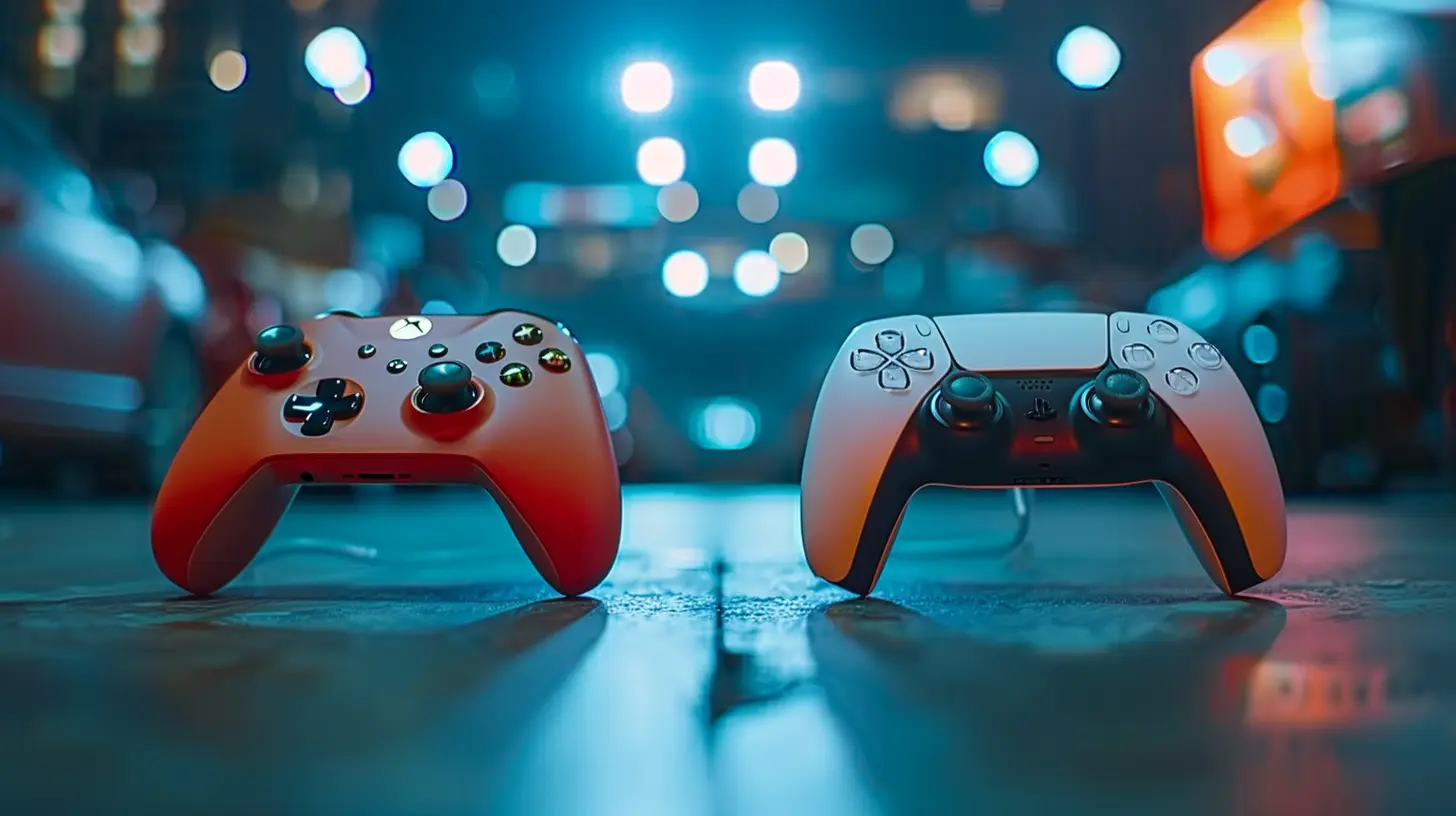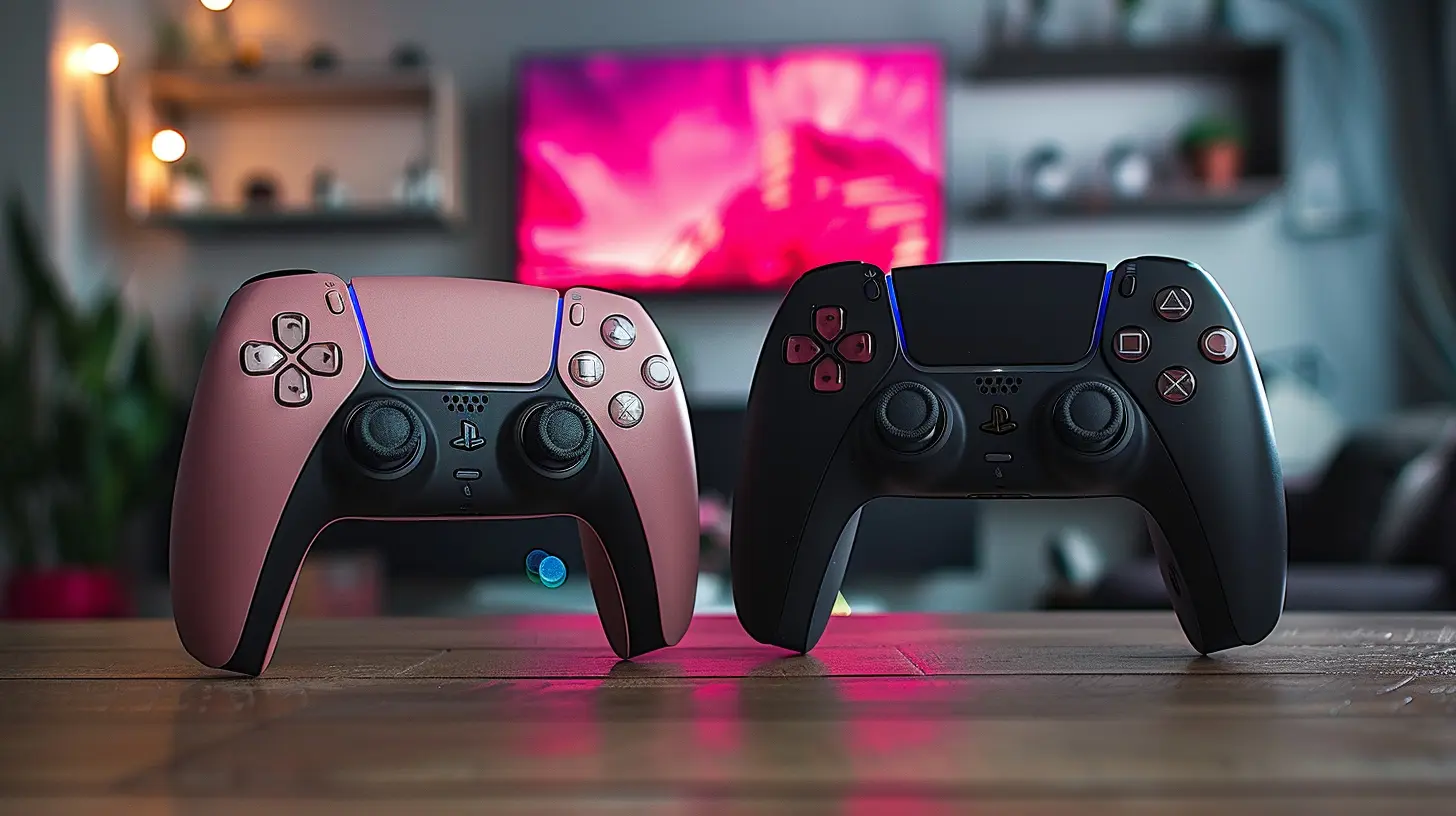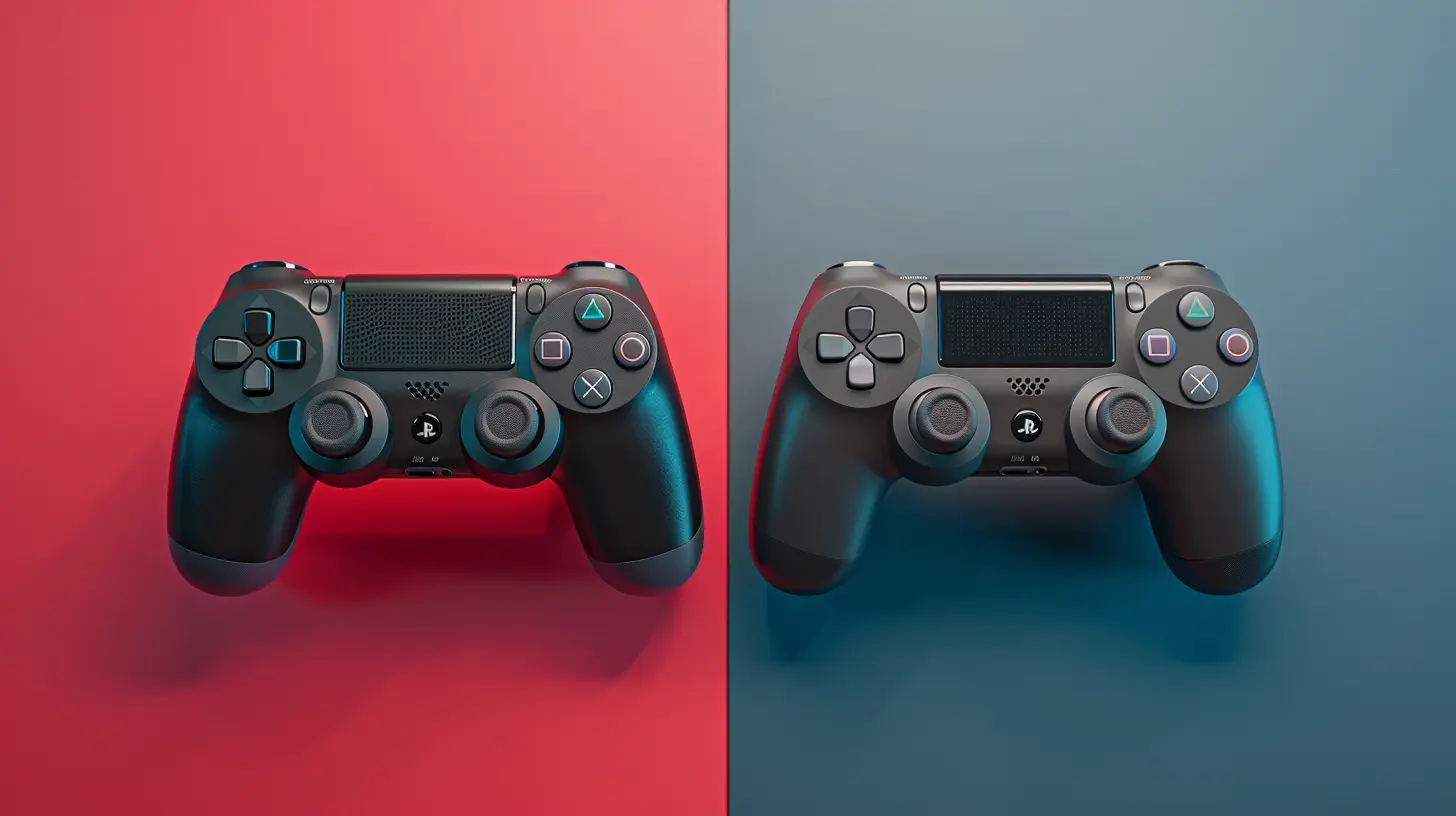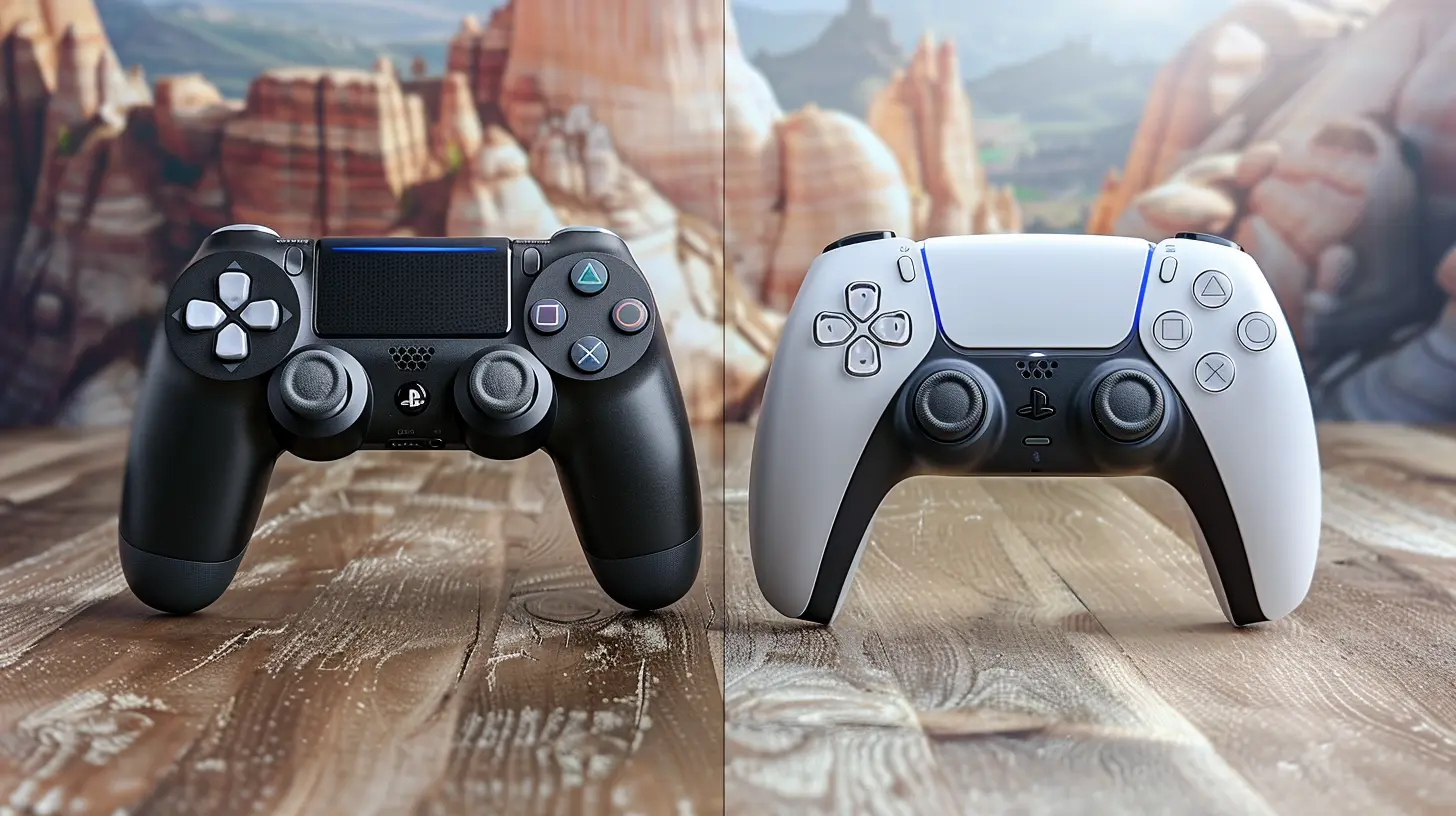Wireless vs Wired Gaming: A Side-by-Side Performance Comparison
5 October 2025
Gaming has evolved from pixelated screens and clunky controllers to seamless, immersive experiences that feel straight out of a sci-fi movie. But one debate continues to rage on among gamers: wireless vs. wired gaming setups. Whether you're a casual Mario Kart racer or a competitive FPS sharpshooter, your choice between wired and wireless can make or break your gaming experience. So, which one is right for you? Let’s dive into this head-to-head comparison to settle the score.
The Basics: What’s the Difference?
Before we start talking about response times and connections, let’s break down what we’re dealing with here.Wired gaming means your devices—controllers, headsets, or even your internet—are physically tethered to your gaming system via cables. Think of it as the old-school, no-nonsense option.
On the other hand, wireless gaming relies on Bluetooth, Wi-Fi, or other radio frequency signals to get the job done. No cables. No clutter. Just you, your gear, and a seamless connection—well, most of the time.
Latency: Which One Keeps Up?
Let’s be real: Latency is often a dealbreaker, especially for competitive gamers.Wired setups are practically legendary for their low latency. This is because a physical cable allows data to travel directly between your device and system without interference. Imagine passing a note directly to a friend versus trying to throw it across a crowded room—wired connections are that direct and reliable.
Wireless, on the other hand, has come a long way, but it’s not completely immune to latency issues. The signal needs to travel through the air, which leaves it vulnerable to interference from other devices, walls, or even your neighbor's Wi-Fi. For casual gaming, this delay might not even register. But for a competitive gamer? That extra millisecond could mean the difference between headshots and heartbreaks.
Verdict:
- Wired wins for ultra-competitive, latency-sensitive gaming.- Wireless holds its own for casual players where a slight delay won’t ruin the fun.

Convenience: Freedom vs. Tangles
Who hasn’t gotten tangled in a web of controller cords or accidentally tripped over a cable mid-boss fight? This category highlights one of wireless gaming’s biggest strengths: convenience.Why Wireless Shines:
- Say goodbye to cable management! Wireless devices let you sprawl out across your couch, stretch, and game comfortably. No more untangling wires or figuring out which cord goes where.- Wireless headsets and controllers make it easier to keep your gaming station clean and minimalist. Let’s be honest, nobody likes a spaghetti-like mess of wires behind their desk.
The Case for Wired:
- Sure, wired gaming isn’t glamorous, but it has its perks. You’ll never have to worry about a controller or headset dying mid-session. Plus, there's no need to charge, pair, or troubleshoot Bluetooth connectivity. It’s always plug-and-play.Verdict:
- Wireless nails convenience, especially for those who hate being confined by cords.- Wired offers peace of mind if you value reliability over portability.

Performance: Speed and Stability
When people talk about performance, they’re usually referring to speed and stability. And honestly? Both wired and wireless have their strengths and weaknesses.Wired Gaming:
Wired connections have the upper hand when it comes to reliability. You’re not going to experience signal drops, random disconnections, or weird glitches. It’s like having a landline phone in an era of cell phones—it’s old-fashioned but practically foolproof.Wireless Gaming:
Wireless tech has improved leaps and bounds over the past few years. Modern wireless devices now offer high-speed, near-lossless performance comparable to their wired counterparts. Sure, the odd hiccup might happen, but these are becoming increasingly rare with advancements in technology.A great example? Wireless gaming mice. Earlier versions had noticeable delays, but today, premium wireless mice from brands like Logitech and Razer deliver input speeds on par with wired models.
Verdict:
- Wired edges out for stability, especially in environments with heavy wireless interference.- Wireless performs well for most gamers, provided you invest in quality gear.
Battery Life: A Wireless Achilles’ Heel
If there’s one thing wireless gaming enthusiasts dread, it’s the low-battery warning. Imagine nailing a clutch play, only for your controller to die at the worst possible moment. That’s the stuff of nightmares!Battery Management for Wireless Gaming:
- Most modern wireless devices boast impressive battery lives (some lasting 20+ hours on a single charge), but they still require regular charging. Plus, forgetting to charge your devices overnight could mean an unplanned gaming break.Wired Gaming Advantages:
- No batteries, no problems. Wired gear doesn’t rely on battery power, so it’s always ready to go when you are. Whether you're logging a quick hour or pulling an all-nighter, wired won't let you down.Verdict:
- Wired wins this round for its infinite uptime.- Wireless offers freedom, but keep that charging cable nearby.
Cost: What’s the Damage?
Let’s talk dollars and cents. For budget-conscious gamers, this is a big one.Wired Gaming:
Wired gear tends to be more affordable simply because it doesn’t include wireless tech like transmitters or rechargeable batteries. If you’re building a gaming setup on the cheap, wired is usually the way to go.Wireless Gaming:
Wireless devices, while pricier, do offer that “cool factor” and added convenience. If you’re willing to splurge, cutting the cord is worth it. But be prepared to pay a premium for quality wireless performance. Cheap wireless devices often suffer from poor battery life and latency issues, so it’s a classic "you get what you pay for" situation.Verdict:
- Wired wins for budget-friendly setups.- Wireless is an investment, perfect for those who value convenience and aesthetics.
Compatibility: Will It Work With Your Setup?
Another thing to keep in mind is how well your gear integrates with your gaming system. Not all devices are created equal, and this is where compatibility comes into play.Wired Gaming:
Wired devices are usually plug-and-play. Whether you’re gaming on a PC, console, or even a mobile device with an adapter, you’re pretty much guaranteed compatibility.Wireless Gaming:
Wireless devices often require Bluetooth or a USB dongle, which can complicate things. Some gaming consoles, like the PlayStation 5, support specific wireless devices but not others. It’s worth checking compatibility before making a purchase.Verdict:
- Wired is universal.- Wireless can vary, so do your homework.
The Final Boss: Which Is Better?
At the end of the day, the “better” choice depends on your gaming style and priorities.- If you’re all about competitive performance, wired is your best bet. It's reliable, fast, and costs less.
- If you value freedom and convenience, wireless is a game-changer—just be prepared to charge your gear and invest in quality devices.
So, what’s your play? Whether you stick to the old-school reliability of wires or embrace the modern magic of wireless, the most important thing is to find what works for you. After all, gaming is supposed to be fun—so pick your gear, settle in, and enjoy the adventure.
all images in this post were generated using AI tools
Category:
Hardware ReviewsAuthor:

Pascal Jennings
Discussion
rate this article
1 comments
Sylvan Pace
Wired offers consistency; wireless freedom!
October 6, 2025 at 4:12 PM

Pascal Jennings
Both options have their merits—wired for stability and low latency, while wireless provides convenience and flexibility. It ultimately depends on your gaming preferences!


